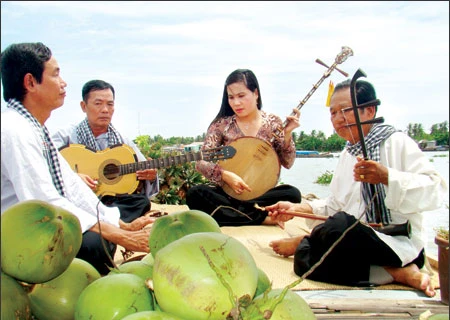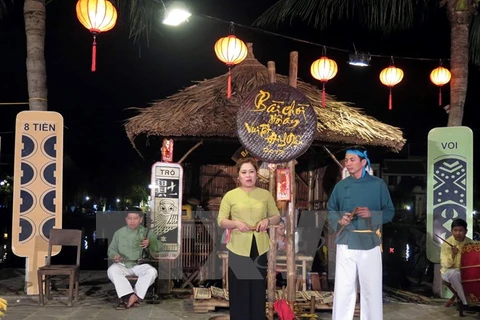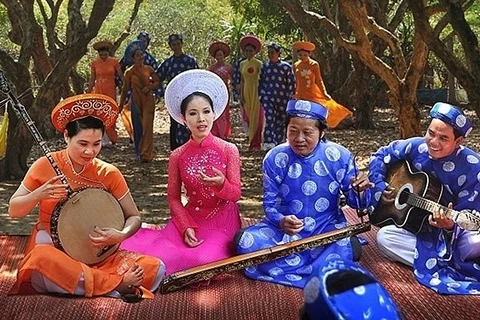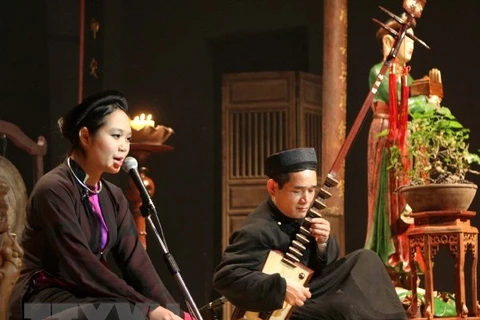 The art of Don ca tai tu music and song in southern Vietnam was named in the list of intangible cultural heirtage of humanity in 2013 (Photo: VNA)
The art of Don ca tai tu music and song in southern Vietnam was named in the list of intangible cultural heirtage of humanity in 2013 (Photo: VNA) Binh Duong (VNA) – The Department of Culture, Sports and Tourism of the southern province of Binh Duong has decided to earmark more than 9.7 billion VND (426,800 USD) to protect the “don ca tai tu” art form (southern amateur singing) from 2018-2020, heard a local conference on March 21.
Binh Duong is home to numerous don ca tai tu clubs, with 844 frequent members. The province will collect information to complete dossiers on the art form, while organising annual don ca tai tu singing and writing contests and festivals.
The money will be used to buy musical tools and fund the activities of 36 don ca tai tu clubs and groups.
Publicity and training work will be conducted on mass media and at schools. The art form will also be introduced in other communication programmes.
Individuals and units with outstanding contribution to preserving Don ca tai tu singing will be honoured with awards, titles of People’s Artists, Meritorious Artists and other more.
Considered one of the country’s main music genres, don ca tai tu originated from Hue court music and folk music of the southern region. The genre has been developing since the 19th century. It thrived in the early 20th century and remains an important part of the country’s traditional culture today.
The music is typically performed at festivals, death anniversary rituals and celebrations by farmer-performers. Instrumentalists and singers express their feelings by improvising based on 20 principal songs and 72 classical songs.
The art was listed in the Representative List of the Intangible Cultural Heritage of Humanity in 2013 by UNESCO.-VNA
VNA
























